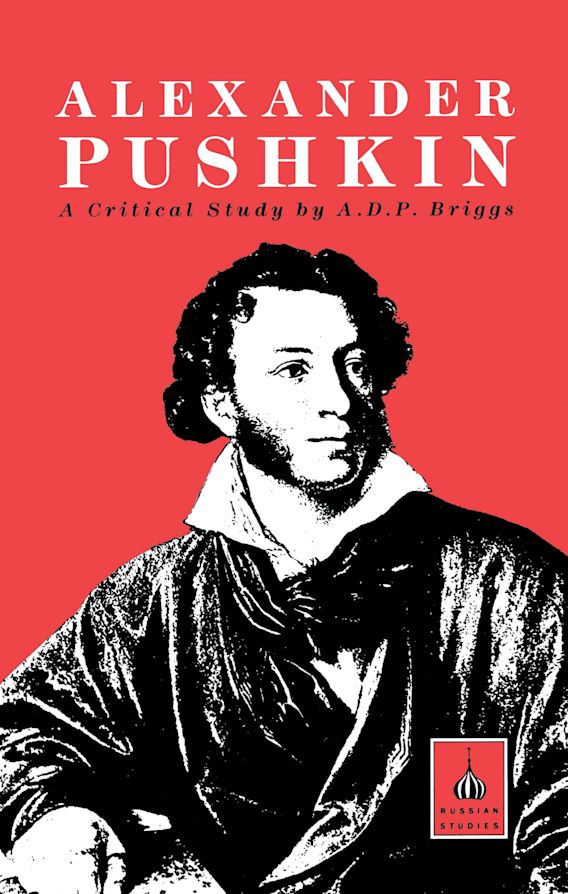BY ALEXANDER PUSHKIN
TRANSLATED BY MRS. SUTHERLAND EDWARDS
CHAPTER II.
Many years passed, and family circumstances obliged me to settle in the poor little village of H. Engaged in farming, I sighed in secret for my former merry, careless existence. Most difficult of all I found it to pass in solitude the spring and winter evenings. Until the dinner hour I somehow occupied the time, talking to the starosta, driving round to see how the work went on, or visiting the new buildings. But as soon as evening began to draw in, I was at a loss what to do with myself. My books in various bookcases, cupboards, and storerooms I knew by heart. The housekeeper, Kurilovna, related to me all the stories she could remember. The songs of the peasant women made me melancholy. I tried cherry brandy, but that gave me the headache. I must confess, however, that I had some fear of becoming a drunkard from ennui, the saddest kind of drunkenness imaginable, of which I had seen many examples in our district.
I had no near neighbours with the exception of two or three melancholy ones, whose conversation consisted mostly of hiccups and sighs. Solitude was preferable to that. Finally I decided to go to bed as early as possible, and to dine as late as possible, thus shortening the evening and lengthening the day; and I found this plan a good one.
Pour versts from my place was a large estate belonging to Count B.; but the steward alone lived there. The Countess had visited her domain once only, just after her marriage, and she then only lived there about a month. However, in the second spring of my retirement, there was a report that the Countess, with her husband, would come to spend the summer on her estate; and they arrived at the beginning of June.
The advent of a rich neighbour is an important event for residents in the country. The landowners and the people of their household talk of it for a couple of months beforehand, and for three years afterwards. As far as I was concerned, I must confess, the expected arrival of a young and beautiful neighbour affected me strongly. I burned with impatience to see her; and the first Sunday after her arrival I started for the village, in order to present myself to the Count and Countess as their near neighbour and humble servant.
The footman showed me into the Count’s study, while he went to inform him of my arrival. The spacious room was furnished in a most luxurious manner. Against the walls stood enclosed bookshelves well furnished with books, and surmounted by bronze busts. Over the marble mantelpiece was a large mirror. The floor was covered with green cloth, over which were spread rugs and carpets.
Having got unaccustomed to luxury in my own poor little corner, and not having beheld the wealth of other people for a long while, I was awed; and I awaited the Count with a sort of fear, just as a petitioner from the provinces awaits in an ante-room the arrival of the minister. The doors opened, and a man about thirty-two, and very handsome, entered the apartment. The Count approached me with a frank and friendly look. I tried to be self-possessed, and began to introduce myself, but he forestalled me.
We sat down. His easy and agreeable, conversation soon dissipated my nervous timidity. I was already passing into my usual manner, when suddenly the Countess entered, and I became more confused than ever. She was, indeed, beautiful. The Count presented me. I was anxious to appear at ease, but the more I tried to assume an air of unrestraint, the more awkward I felt myself becoming. They, in order to give me time to recover myself and get accustomed to my new acquaintances, conversed with one another, treating me in good neighbourly fashion without ceremony. Meanwhile, I walked about the room, examining the books and pictures. In pictures I am no connoisseur; but one of the Count’s attracted my particular notice. It represented a view in Switzerland was not, however, struck by the painting, but by the fact that it was shot through by two bullets, one planted just on the top of the other.
“A good shot,” I remarked, turning to the Count.
“Yes,” he replied, “a very remarkable shot.”
“Do you shoot well?” he added.
“Tolerably,” I answered, rejoicing that the conversation had turned at last on a subject which interested me.’ “At a distance of thirty paces I do not miss a card; I mean, of course, with a pistol that I am accustomed to.”
“Really?” said the Countess, with a look of great interest. “‘And you, my dear, could you hit a card at thirty paces?”
“Some day,” replied the Count, “we will try. In my own time I did not shoot badly. But it is four years now since I held a pistol in my hand.”
“Oh,” I replied, “in that case, I bet, Count, that you will not hit a card even at twenty paces. The pistol demands daily practice. I know that from experience. In our regiment I was reckoned one of the bests shots. Once I happened not to take a pistol in hand for a whole month; I had sent my own to the gunsmith’s. Well, what do you think, Count? The first time I began again
to shoot I four times running missed a bottle at twenty paces. The captain of our company, who was a wit, happened to be present, and he said to me: ‘Your hand, my friend, refuses to raise itself against the bottle! No, Count, you must not neglect to practise, or you will soon lose all skill. The best shot I ever knew used to shoot every day, and at least three times every day, before dinner. This was as much his habit as the preliminary glass of vodka.”
The Count and Countess seemed pleased that I had begun to talk.
“And what sort of a shot was he?” asked the Count.
“This sort, Count. If he saw a fly settle on the wall—you smile, Countess, but I assure you it is a fact. When he saw the fly, he would call out, ‘Kuska, my pistol!’ Kuska brought him the loaded pistol. A crack, and the fly was crushed into the wall!”
“That is astonishing!” said the Count. “And what was his name?”
“Silvio was his name.”
“Silvio!” exclaimed the Count, starting from his seat. “You knew Silvio?”
“How could I fail to know him? We were comrades; he was received at our mess like a brother officer. It is now about five years since I last had tidings of him. Then you, Count, also knew him?”
“I knew him very well. Did he never tell you of one very extraordinary incident in his life?”
“Do you mean the slap in the face, Count, that he received from a blackguard at a ball?” “He did not tell you the name of this blackguard?”
“No, Count, he did not. Forgive me,” I added, guessing the truth, “forgive me—I did not—could it really have been you?”
“It was myself,” replied the Count, greatly agitated. “And the shots in the picture are a memento of our last meeting.”
“Oh, my dear,” said the Countess, “for God’s sake do not relate it! It frightens me to think of it.”
“No,” replied the Count; “I must tell him all. He knows how I insulted his friend. He shall also know how Silvio revenged himself.”
The Count pushed a chair towards me, and with the liveliest interest I listened to the following story:—
“Five years ago,” began the Count, “I got married. The honeymoon I spent here, in this village. To this house I am indebted for the happiest moments of my life, and for one of its saddest remembrances.
“One afternoon we went out riding together. My wife’s horse became restive. She was frightened, got off the horse, handed the reins over to me; and walked home. I rode on before her. In the yard I saw a travelling carriage, and I was told that in my study sat a man who would not give his name, but simply said that he wanted to see me on business. I entered the study, and saw in the darkness a man, dusty and unshaven. He stood there, by the fireplace. I approached him, trying to recollect his face.
“‘You don’t remember me, Count?’ he said, in a tremulous voice.
“‘Silvio!’ I cried, and I confess I felt that my hair was standing on end.
“‘Exactly so,’ he added. ‘You owe me a shot; I have come to claim it. Are you ready?’
“A pistol protruded from his side pocket.
“I measured twelve paces, and stood there in that corner, begging him to fire quickly, before my wife came in.
“He hesitated, and asked for a light. Candles were brought in. I locked the doors, gave orders that no one should enter, and again called upon him to fire. He took out his pistol and aimed.
“I counted the seconds…. I thought of her … A terrible moment passed! Then Silvio lowered his hand.
“‘I only regret,’ he said, that the pistol is not loaded with cherry-stones. My bullet is heavy; and it always seems to me that an affair of this kind is net a duel, but a murder. I am not accustomed to aim at unarmed men. Let us begin again from the beginning. Let us cast lots as to who shall fire first.’
“My head went round. I think I objected. Finally, however, we loaded another pistol and rolled up two pieces of paper. These he placed inside his cap; the one through which, at our first meeting, I had put the bullet. I again drew the lucky number.
“‘Count, you have the devil’s luck,’ he said, with a smile which I shall never forget.
“I don’t know what I was about, or how it happened that he succeeded in inducing me. But I fired and hit that picture.”
The Count pointed with his finger to the picture with the shot-marks His face had become red with agitation. The Countess was whiter than her own handkerchief; and I could not restrain an exclamation.
“I fired,” continued the Count, “and, thank Heaven, missed. Then Silvio—at this moment he was really terrible—then Silvio raised his pistol to take aim at me.
“Suddenly the door flew open, Masha rushed into the room. She threw herself upon my neck with a loud shriek. Her presence restored to me-all my courage.
“‘My dear,’ I said to her, ‘don’t you see that we are only joking? How frightened you look! Go and drink a glass of water and then come back; I will introduce you to an old friend and comrade.’
Masha was still in doubt.
“‘Tell me; is my husband speaking the truth?’ she asked, turning to the terrible Silvio. ‘Is it true that you are only joking?’
“‘He is always joking. Countess,’ Silvio replied. ‘He once in a joke gave me a slap in the face; in joke he put a bullet through this cap while I was wearing it; and in joke, too, he missed me when he fired just now. And now I have a fancy for a joke.’
“With these words he raised his pistol as if to shoot me down before her eyes.”
Masha threw herself at his feet.
‘Rise, Masha! For shame!’ I cried, in my passion. ‘And you, sir, cease to amuse yourself at the expense of an unhappy woman. Will you fire or not?’
“‘I will not,’ replied Silvio. ‘I am satisfied. I have witnessed your agitation—your terror. I forced you to fire at me. That is enough; you will remember me. I leave you to your conscience.’
“He was now about to go; but he stopped at the door, looked round at the picture which my shot had passed through, fired at it almost without taking aim, and disappeared.
“My wife had sunk down fainting. The servants had not ventured to stop Silvio, whom they looked upon with terror. He passed out to the steps, called his coachman, and before I could collect myself drove off.”
The Count was silent. I had now heard the end of the story of which the beginning had long before surprised me. The hero of it I never saw again. I heard, however, that Silvio, during the rising of Alexander Ipsilanti, commanded a detach of insurgents and was killed in action.









Great!